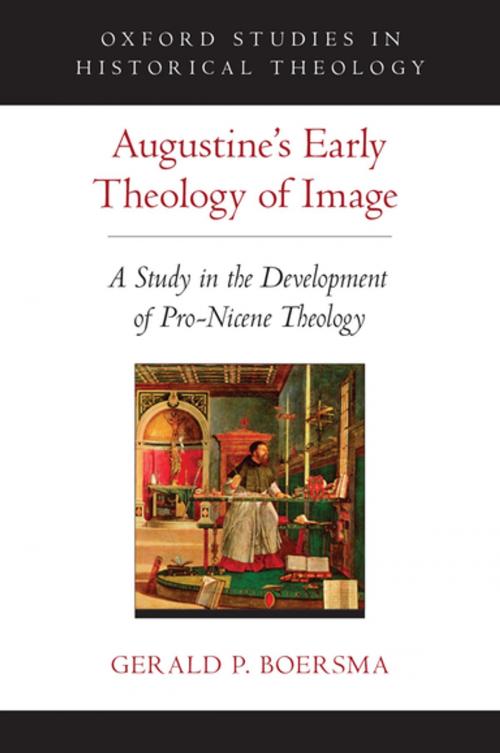Augustine's Early Theology of Image
A Study in the Development of Pro-Nicene Theology
Nonfiction, Religion & Spirituality, Christianity, Church, Church History, Theology| Author: | Gerald P. Boersma | ISBN: | 9780190493509 |
| Publisher: | Oxford University Press | Publication: | January 15, 2016 |
| Imprint: | Oxford University Press | Language: | English |
| Author: | Gerald P. Boersma |
| ISBN: | 9780190493509 |
| Publisher: | Oxford University Press |
| Publication: | January 15, 2016 |
| Imprint: | Oxford University Press |
| Language: | English |
What does it mean for Christ to be the "image of God"? And, if Christ is the "image of God," can the human person also unequivocally be understood to be the "image of God"? Augustine's Early Theology of Image examines Augustine's conception of the imago dei and makes the case that it represents a significant departure from the Latin pro-Nicene theologies of Hilary of Poitiers, Marius Victorinus, and Ambrose of Milan only a generation earlier. Augustine's predecessors understood the imago dei principally as a Christological term designating the unity of divine substance. But, Gerald P. Boersma argues, Augustine affirms that Christ is an image of equal likeness, while the human person is an image of unequal likeness. Boersma's careful study thus argues that a Platonic and participatory evaluation of the nature of "image" enables Augustine's early theology of the image of God to move beyond that of his Latin predecessors and affirm the imago dei both of Christ and of the human person.
What does it mean for Christ to be the "image of God"? And, if Christ is the "image of God," can the human person also unequivocally be understood to be the "image of God"? Augustine's Early Theology of Image examines Augustine's conception of the imago dei and makes the case that it represents a significant departure from the Latin pro-Nicene theologies of Hilary of Poitiers, Marius Victorinus, and Ambrose of Milan only a generation earlier. Augustine's predecessors understood the imago dei principally as a Christological term designating the unity of divine substance. But, Gerald P. Boersma argues, Augustine affirms that Christ is an image of equal likeness, while the human person is an image of unequal likeness. Boersma's careful study thus argues that a Platonic and participatory evaluation of the nature of "image" enables Augustine's early theology of the image of God to move beyond that of his Latin predecessors and affirm the imago dei both of Christ and of the human person.















